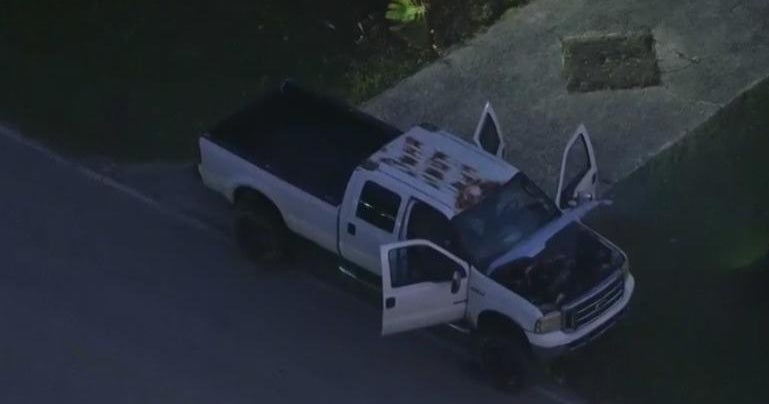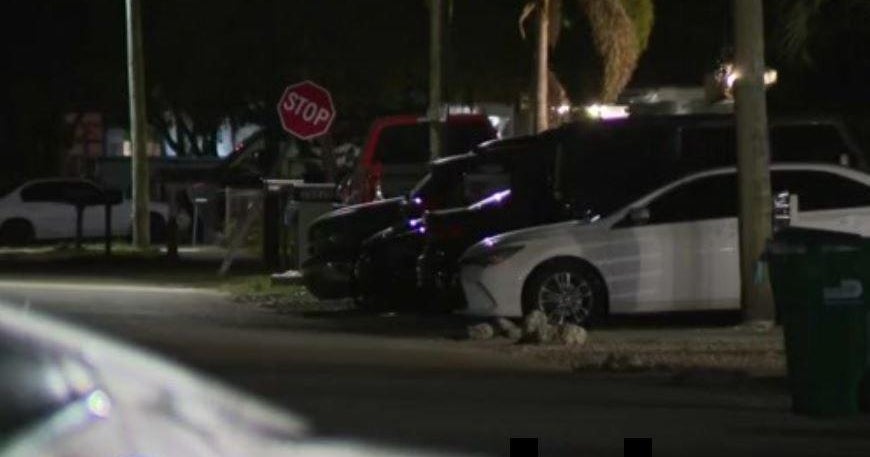Medicare Fraudsters Sentenced To Prison After $45M Scheme
MIAMI (CBSMiami) — A recent report revealed no area of the U.S. cheats Medicare like South Florida, and Luis Alejandro Sanz and his wife Elizabeth Acosta Sanz's $45 million scheme contributed to the dubious honor.
When Luis Alejandro Sanz got out of prison for drug trafficking, he soon found his new criminal fortunes in Miami's emerging cottage industry: Medicare fraud.
The convicted felon started a home healthcare company, using his wife Elizabeth as the straw owner to hide himself from authorities.
The couple cashed in. Their Miami-Dade business, Ideal Home Health, billed Medicare $45 million for purportedly providing nursing services for homebound diabetic patients — raking in $30 million in taxpayer dollars.
CBS4 news partner The Miami Herald reports that on Friday, U.S. District Judge Kathleen Williams sent Luis Sanz, 58, to prison for 10 years and Elizabeth Acosta Sanz, 45, for nine years, saying the couple made a "mockery" of the beleaguered federal program for the elderly and disabled. The Sanzes, who bought a $1.3 million West Miami-Dade home with their ill-gotten gains, paid kickbacks to recruiters and patients for services that were never provided or needed.
Even the couple's defense attorney, Jay Moskowitz, told the judge: "In this particular case, the patients [were] in on it."
The Sanzes, who have an 8-year-old daughter, pleaded guilty earlier this year in cooperation deals with the feds. So far, the investigation of their business, which bilked Medicare between 2006 and 2009, has produced 25 fraud convictions. Indictments of more co-conspirators are expected.
Assistant U.S. Attorney Dan Bernstein said the Medicare program, which has been widely criticized for lax oversight of providers and claims in the past, should not be blamed in the Sanzes' case because the couple made their business look so legitimate.
Luis Sanz, who had served a five-year prison sentence for cocaine smuggling and money laundering in the 1990s, conceived the home care scam and recruited the patients. His wife, who ran the business, forged doctors' signatures, altered medical records and filed false claims. Both have been in custody since their arrests in July 2011.
"Every single day, they had one purpose: to steal as much money as they could from Medicare," Bernstein told the judge. "Medicare paid because these people were good at fooling Medicare."
Sanz's reinvention as a Medicare entrepreneur is nothing new for freed felons, according to Bernstein, who heads the healthcare fraud section at the U.S. attorney's office.
"The case of Luis Sanz really encapsulates what's been happening in Miami" since the 1990s, when many drug traffickers began gravitating to the Medicare rackets because it was seen as profitable and less risky.
Among those who have slipped through the system:
• Armando "Manny" Gonzalez, a convicted cocaine trafficker, opened a pair of mental health clinics in the Kendall and Cutler Bay areas in the mid-2000s. By 2008, suspecting the feds were on to him, he took his psychotherapy business to North Carolina. In May, Gonzalez was indicted with eight other defendants on charges of conspiring to fleece $63 million from Medicare. His now-shuttered company, Health Care Solutions Network, was paid $28 million. A federal trial is pending.
• Lazaro Delgado, after serving a nine-year prison sentence for drug dealing, acquired two home healthcare agencies that billed Medicare $4.1 in phony claims. Delgado hid his role by putting the businesses, Loyal Home Health and Loving Nursing, in the names of straw owners. Delgado, who stole the ID numbers of physicians and patients in the Medicare network to submit fraudulent claims, collected $1.8 million for purported medical services in 2010-11. Delgado recently pleaded guilty and faces sentencing.
• Angel Castillo Jr., a high school dropout and convicted drug dealer, acquired 11 medical equipment companies in the mid-2000s. He used Cuban migrants as straw owners for three of those businesses to disguise his ownership role. Castillo, convicted of billing $48 million in false Medicare claims and pocketing $8 million, had his 20-year prison sentence slashed in half for helping authorities prosecute a dozen defendants.
Medicare officials said the program regularly conducts criminal background checks on healthcare operators and has disqualified some felons as a result — but it has missed those who put the businesses in other people's names with clean records.
Last year, Medicare adopted new measures designed to combat the failed "pay and chase" model of doling out dollars for claims, then pursuing the scammers after they have run off with the money. As part of the Affordable Care Act, Medicare received $350 million to develop stricter screening of healthcare providers and more sophisticated software for detecting fraudulent claims.
Among the improvements: providers who historically have posed a higher risk of fraud, such as medical equipment suppliers and home care service suppliers, must now undergo more comprehensive screenings, including FBI criminal background checks and fingerprinting.
Also, if Medicare billing contractors receive a "credible" allegation of fraud from a patient, payments to a provider can temporarily be suspended while an investigation is done.
The upgrades in screening and technology came in response to massive taxpayer losses in South Florida — regarded as the nation's healthcare fraud capital — and other parts of the country.
"Medicare is hemorrhaging money because of cases like this," said Bernstein, the prosecutor, referring to the Sanzes. He told the judge that the couple, whose young daughter is living with her grandmother, blew all of their Medicare millions: "The money is gone."



